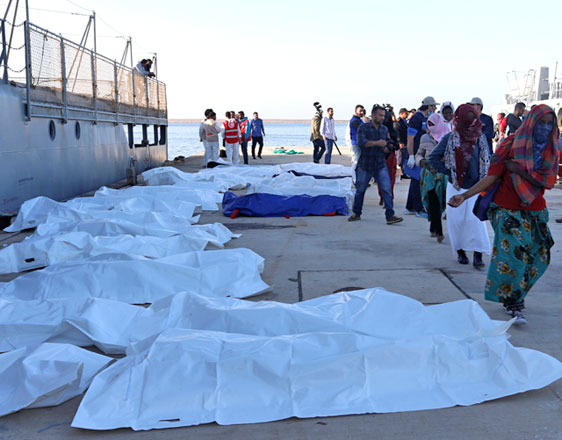OTTAWA — Canadian Prime Minister Justin Trudeau on Sunday urged the international community to “do more” following reports of the “abhorrent and despicable” enslavement of vulnerable African refugees arriving in Libya.
“Canada will not stay silent in the face of such inhumane atrocities,” Trudeau said in a statement published on a government website.
“While it is clear that the Libyan government is investigating this horrific injustice, and humanitarian organisations have launched efforts to help the victims, more must be done,” he said.
The prime minister called on all United Nations member states to implement and enforce a protocol against human trafficking, particularly of women and children.
UN Secretary General Antonio Guterres said Tuesday, in response to the reports, that “slavery and other such egregious abuses of human rights have no place in the 21st century”.
A 2016 US State Department report said migrants from sub-Saharan Africa reaching Libya — many without travel documents — were “highly vulnerable” to being forced into labor, or into prostitution.
Sold for $400
Trudeau said Canada would continue its work to fight slavery and bring those responsible to justice, adding that “the international community must take action”.
US network CNN has reported on the existence of slave auctions near the Libyan capital of Tripoli, drawing worldwide expressions of horror and condemnation.
CNN said it had used concealed cameras to film auctions at which terrified migrants were sold for as little as $400.
The Libyan government has said it is investigating the practice and will “soon” reveal its findings.
Thousands of African migrants enter Libya each year in hopes of making their way across the Mediterranean to Europe. Many arrive in Libya virtually penniless, making them particularly vulnerable to modern-day slave traders.
